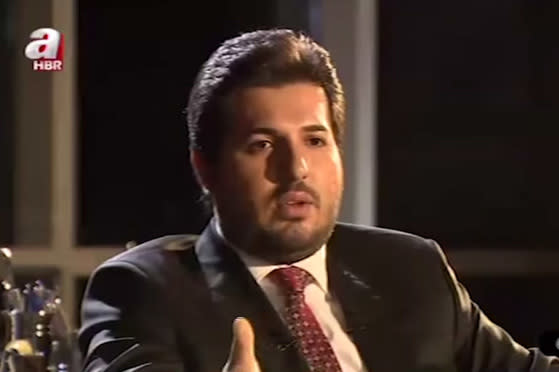Turkish Gold Trader Is 'Stealth' Defendant on Eve of Sanction-Busting Trial
[caption id="attachment_10433" align="aligncenter" width="559"]

Reza Zarrab.[/caption] The trial of Reza Zarrab, a Turkish gold trader accused of evading U.S. sanctions on Iran, is scheduled to open just weeks from now, but he has become a “stealth defendant” in the case, his co-defendant’s lawyer said Monday.Zarrab was arrested in March 2016, is set to stand trial alongside co-defendant Mehmet Atilla on Nov. 27 on charges of conspiracy to defraud the United States, conspiracy to defraud the International Emergency Economic Powers Act, bank fraud, money laundering and associated conspiracy charges.But in court filings, lawyers for Atilla said that Zarrab has “essentially” not participated in the case since September and is unlikely to appear at trial. Herrick Feinstein partner Victor Rocco, a member of Atilla’s defense team, noted at a conference on Monday before U.S. District Judge Richard Berman of the Southern District of New York that Zarrab—who has been incarcerated since his arrest—was not present in the courtroom and said that Zarrab had gone “stealth.” Zarrab did not file to challenge the admissibility of government evidence last week, allowing a deadline to pass; neither did he submit proposed jury instructions or questions for the jury. Benjamin Brafman, Zarrab’s lead counsel, declined to comment for this article. One of the prosecutors in the case declined to comment outside the courtroom and referred questions to the press office for the U.S. Attorney’s Office for the Southern District of New York, which did not respond to a request for comment. There was comment from trial observers about the possibility of Zarrab considering a plea agreement.
Miriam Baer, a Brooklyn Law School professor and former Southern District prosecutor
said the fact that Zarrab did not file an evidentiary motion this close to trial raises three possible scenarios: that Zarrab’s team is seeking a plea deal, that they are seeking to make him a cooperating witness in the case or that the team is planning a different strategy. “Someone who doesn’t respond to a motion in limine, that’s a surprising tactic if one expects to aggressively defend one’s client at trial,” Baer said.
At the conference, Berman denied a request from Atilla’s team to further delay the trial to January. “He has a better idea than you and me about what it’s like to sit in jail,” Berman said to Rocco in reference to Atilla, who was present in the courtroom and wearing a jail uniform. Assistant U.S. Attorneys Michael Lockard, Sidhardha Kamaraju, David Denton Jr. and Dean Sovolos of the Southern District are prosecuting the case. The case against Zarrab has put strain on relations between Turkey and the United States. Turkey’s president, Recep Tayyip Erdogan, has pressured U.S. officials to scuttle the prosecution. In a May 2016 filing, then-Southern District U.S. Attorney Preet Bharara said that an investigation by a Turkish prosecutor that led to Zarrab’s arrest “describes a massive bribery scheme executed by Zarrab and others, paying cabinet-level governmental officials and high-level bank officers tens of millions of euro and U.S. dollars to facilitate Zarrab’s network’s transactions for the benefit of Iran.” Prosecutors in the Zarrab case filed papers last week that suggested ties between Erdogan and Zarrab, including a conversation between the two at a 2013 social event, and excerpts from transcripts of recorded phone calls in which he discusses his interactions with Erdogan. “Even if we do two billion, that is important,” Zarrab said in a 2013 conversation, when Erdogan was still Turkey’s prime minister. “Do you understand? It is important for me, in the eye of the prime minister, since I will go straight to him.” Zarrab’s case drew further attention this year when former New York City Mayor Rudolph Giuliani, now a shareholder with Greenberg Traurig; and former U.S. Attorney General Michael Mukasey, who is of counsel to Debevoise & Plimpton, joined Zarrab’s defense team. Giuliani and Mukasey were brought in to seek a diplomatic solution to the case and did not appear in court on Zarrab’s behalf and met with Erdogan during the course of the case. Giuliani did not respond to a request for comment and Mukasey declined to comment.

